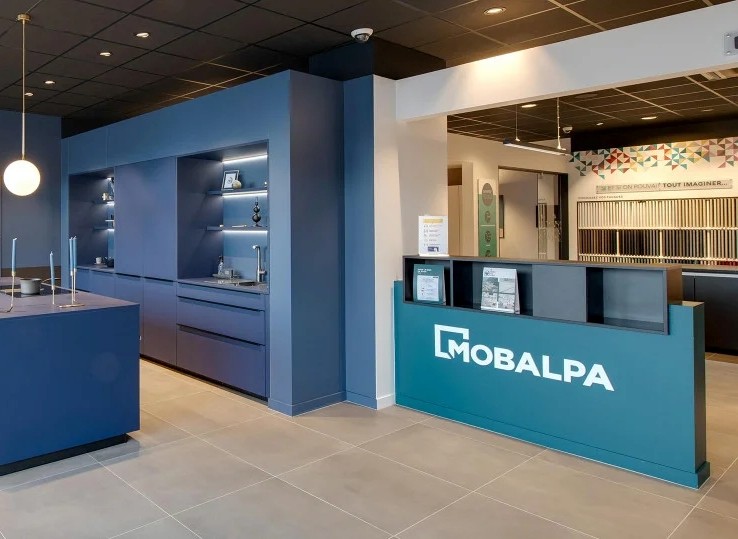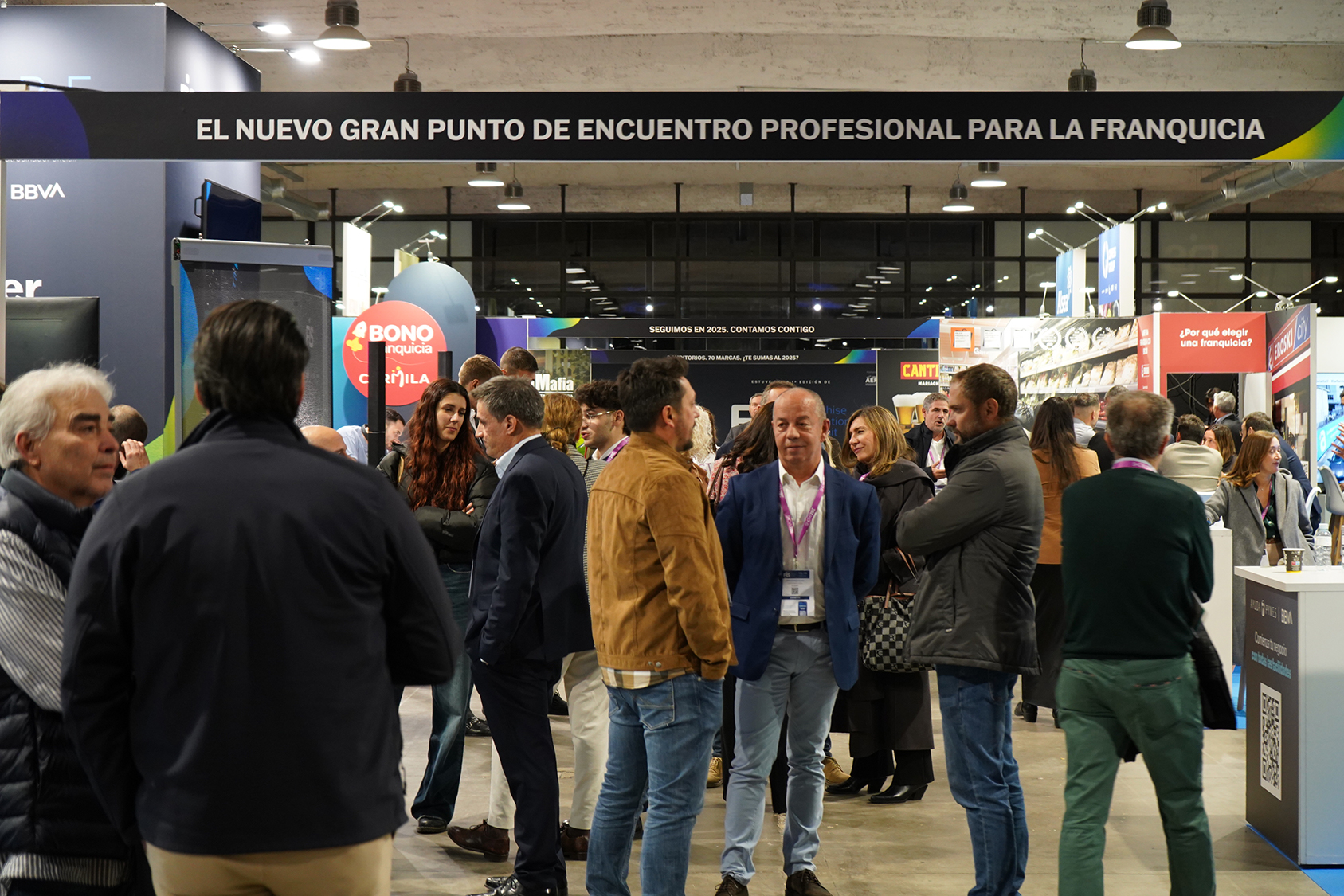Specialized retail strengthens its position in the franchise ecosystem in Spain

Madrid, July 3, 2025
Retail franchises are consolidating their role in the Spanish market, with particular dynamism in specialty stores, one of the formats with the greatest capacity for adaptation, innovation, and growth within the franchise system.
With more than 1,380 active networks, 78,000 establishments, and more than 318,000 jobs created, the franchise model continues to grow in Spain and now represents nearly 1.9% of GDP, according to data from the latest report from the Spanish Franchise Association (AEF).
In this context, specialty stores, including sectors such as fashion, electronics, home, beauty, and gourmet food, have positioned themselves as one of the types of stores with the greatest added value and projection in the retail channel. Their ability to differentiate themselves, scale their value proposition, and generate personalized experiences makes them one of the drivers of growth under the franchise model.
It's no surprise, therefore, that this segment now has more than 400 franchisor brands and more than 40,000 operating establishments, contributing significantly to the sector's business volume.
The specialized franchise retail model is consolidating as one of the most dynamic and resilient within the Spanish and European commercial system, offering real opportunities for growth and diversification for entrepreneurs, business owners, and investors. Brands such as Mobalpa and SoCoo'c (France), specializing in kitchen and home furnishings, have demonstrated that models focused on product customization and customer experience can successfully scale in different markets, thanks to the solidity of their processes, their brand identity, and a clear value proposition. Hyperspecialization—as Tea Shop also illustrates in the gourmet world—allows franchisees to position themselves as leaders in a specific segment, with higher margins, greater loyalty, and a more controlled operating environment. These brands not only offer a proven model, but also a clear roadmap for those who want to invest in profitable, differentiated, and long-term businesses.
For investors or entrepreneurs, the appeal of specialized retail lies in its ability to adapt to both the local market and new consumer trends. Franchises such as DepilConcept (Portugal) in advanced aesthetics, or REPLUS in enclosure solutions, demonstrate how business concepts that address specific needs and are highly technical offer solid medium- and long-term prospects. Furthermore, businesses such as uStore-it, focused on renting storage spaces, are taking advantage of changes in urban lifestyles, positioning themselves as functional, local solutions that are in high demand in metropolitan environments. Added to all this is the drive of brands focused on new consumption models such as Cash Converters (structured second-hand), Yakart Motorhomes (mobility and leisure), or ECOX4D-5D-ELIXIAN (technology applied to emotional or aesthetic experiences), which open up opportunities in sectors with strong growth potential, even in more uncertain economic contexts.
From a business and strategic perspective, these franchises not only represent an investment with proven returns, but also a channel for diversifying portfolios, starting a business without starting from scratch, and benefiting from consolidated know-how. Furthermore, brands such as The Body Shop and Yves Rocher, both focused on sustainability and ethical cosmetics, align their model with ESG values, attracting a more conscious consumer and franchisee profile. Ecosystem support initiatives such as the Franchise Innovation Summit 2025 reinforce these opportunities, providing industry players with access to knowledge, networking, emerging trends (such as AI, omnichannel, and experiential design), and visibility to other investors and institutions. Brands like CARLIN (stationery and office supplies) or AMBISEINT (olfactory marketing), with decades of experience, prove that even the most traditional sectors can be reinvented through specialization.
Value proposition and customer experience as drivers of growth
Faced with a more demanding and omnichannel consumer, specialty retail brands are betting on new expansion strategies (corners, hybrid stores, progressive digitalization), smart data-driven loyalty, differentiated and immersive experiences at the point of sale, and a strong brand identity consistent with their value proposition.
Today's consumer is looking for more specific experiences and solutions tailored to their needs. Hyperspecialization achieves a greater emotional connection with the customer, as well as improved business scalability, the ability to offer a wider assortment of products and services, as well as a wider range of improved cross-selling options.
The key to hyperspecialization is based on having a customer profile as the epicenter of the commercial strategy. This way, the value proposition can be focused on their expectations and offer greater personalization. In return, there is the possibility of obtaining higher purchase receipts and greater loyalty, resulting in greater repeat business.
This model attracts investors, entrepreneurs, and franchisees alike, and is gaining ground in shopping centers, prime streets, and convenience stores. Furthermore, many of these brands are investing in internationalization, helping to position Spanish franchising beyond our borders.
In total, 311 national chains are present in 140 countries, totaling 18,897 establishments outside our borders. Sectors such as fashion are leading this internationalization—with 71 Spanish fashion chains totaling 8,995 stores in 127 countries— and nearby destinations such as Portugal are consolidating their position as the main destination market (53.6% of internationalized Spanish franchises are present there), followed by Mexico and Andorra. This expansion reflects the attractiveness of the Spanish franchise model abroad and its ability to adapt to different markets.
FIS 2025 strengthens its commitment to the retail channel
Brands that have opted for hyper-specialization are redefining the rules of modern retail. In a constantly evolving environment, the challenges that the future will hold, such as the need for constant innovation and adaptation to changing consumer habits (including the digitalization of retail), will be key factors for franchise specialty stores to continue growing in a competitive environment. Addressing these issues in a solid manner, seeking new expansion opportunities, and strengthening their resilience in the face of a changing global economic landscape will be key aspects to consider for continued growth.
Precisely to be a tool at the service of the franchise ecosystem, the 2025 edition of the Franchise Innovation Summit—which will be held on October 15 and 16 at the Riyadh Air Metropolitan Stadium in Madrid—will strengthen its programming and showroom with content specifically aimed at specialty retail.
Highlighted topics include multi-channel expansion, true omnichannel, artificial intelligence in retail, space design, logistics innovation, talent acquisition, and loyalty. The event will bring together more than 120 brands, 3,500 professionals, and will feature the participation of franchisors, entrepreneurs, investors, and franchisees leading national and international figures.






